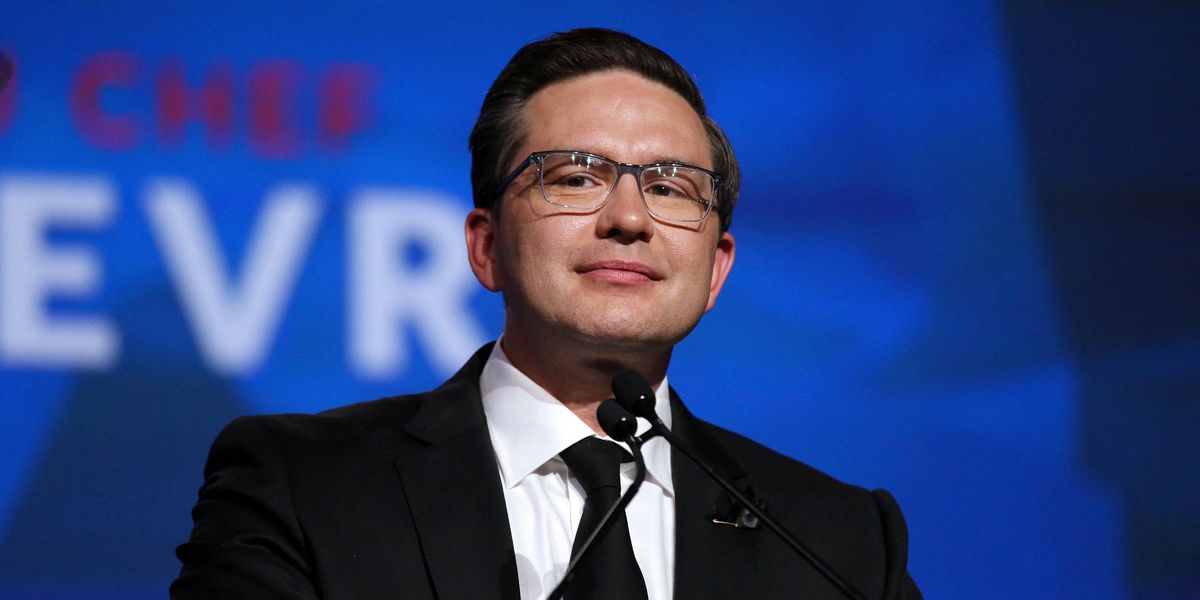Pierre Poilievre’s Bold Stance on Israel and Iran: A Turning Point for Canadian Politics?
During a recent press conference, Pierre Poilievre, the leader of the Conservative Party of Canada, made headlines with his unequivocal support for Israel’s right to defend itself against Iran’s nuclear ambitions. This statement comes at a time of heightened tensions in the Middle East, particularly following Iran’s missile attacks on Israel. Poilievre’s comments not only reflect his foreign policy stance but also signal a potential shift in Canadian politics as he positions himself as a strong alternative to Prime Minister Justin Trudeau.
A Clear Position on Middle Eastern Conflict
When questioned about his endorsement of Israel striking Iran’s nuclear sites, Poilievre did not shy away from expressing his views. He stated, “I think the idea of allowing a genocidal, theocratic, unstable dictatorship — that is desperate to avoid being overthrown by its own people — to develop nuclear weapons, is about the most dangerous and irresponsible thing that the world could ever allow.” His assertion that preventing Iran from acquiring nuclear capabilities would be “a gift by the Jewish state to humanity” underscores his belief in a proactive approach to international security.
This stance diverges sharply from that of U.S. President Joe Biden, who has been more cautious about endorsing military action in the region. Poilievre’s willingness to take a hard line on Iran may resonate with certain voter demographics, particularly those who prioritize national security and international stability.
Rising Popularity Among Young Voters
Interestingly, Poilievre’s assertive foreign policy is not the only factor contributing to his rising popularity. Recent polls indicate a significant surge in support for the Conservative Party, especially among younger voters aged 18 to 35. An astonishing 47% of Canadian Millennials indicated they would vote for Poilievre if an election were held today. This demographic shift is largely attributed to economic concerns, including high inflation, a cost-of-living crisis, and housing unaffordability, which have driven many young Canadians away from the Liberal Party.
The discontent with Trudeau’s government is palpable, with nearly half of all Canadians expressing a desire for an election this year. A recent poll revealed that 38% of respondents believe Trudeau is the worst prime minister since 1968, highlighting the growing dissatisfaction with his leadership.
Economic Issues at the Forefront
The economic landscape has become a pivotal battleground in Canadian politics. Young voters, in particular, are increasingly frustrated with the rising cost of living and housing prices. Poilievre has capitalized on this sentiment by promising to “Axe the Tax,” a reference to the carbon tax implemented by the Liberal government. His message has resonated on social media, where young Canadians are actively engaging with his campaign.
As the Conservatives gain traction, CBS News reported that Poilievre’s party is poised to win a significant majority in the next election. Polls indicate that the Conservatives could secure around 42.8% of the vote, compared to just 22.8% for Trudeau’s Liberals, potentially leading to a massive 220 seats in the 343-seat Canadian Parliament.
A New Era in Canadian Politics?
Omer Aziz, a former foreign policy advisor to the Liberal government, remarked on Poilievre’s political acumen, stating, “He’s easily the most skilled Conservative politician I’ve seen in my lifetime. We Liberals didn’t take him seriously enough early on. He could wipe us out.” This acknowledgment from a former insider underscores the potential threat Poilievre poses to the current government.
As Canada approaches its next election, which must occur before or during October 2025, the political landscape is shifting. Poilievre’s bold foreign policy stance, combined with his appeal to younger voters and focus on economic issues, could redefine the Conservative Party’s position in Canadian politics.
Conclusion
Pierre Poilievre’s recent comments on Israel and Iran reflect a broader strategy to position himself as a strong leader capable of addressing both international and domestic challenges. As he gains popularity, particularly among younger Canadians disillusioned with the current government, the stage is set for a potentially transformative election. Whether Poilievre can maintain this momentum and translate it into electoral success remains to be seen, but one thing is clear: Canadian politics is entering a new and dynamic phase.
